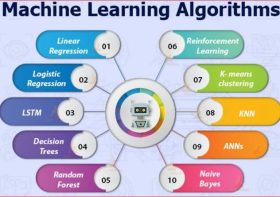Ethics in Artificial Intelligence: Ensuring Responsible AI Development

In today’s digital age, artificial intelligence (AI) has become increasingly prevalent in various aspects of our lives. From autonomous vehicles to virtual assistants, AI technology has the potential to revolutionize industries and improve efficiency. However, with great power comes great responsibility. As AI continues to advance at a rapid pace, it is imperative to consider the ethical implications of its development and deployment.
The Importance of Ethical AI Development
Ethics play a crucial role in the development of AI technology. Without proper guidelines and oversight, AI systems have the potential to be used in harmful and unethical ways. Take, for example, the use of AI in facial recognition technology. While this technology can be used for legitimate purposes such as improving security measures, it also raises concerns about surveillance and invasion of privacy.
To mitigate these risks, responsible AI development must prioritize ethical considerations. This includes ensuring that AI systems are designed and implemented in a way that upholds principles such as transparency, fairness, and accountability. By prioritizing ethical AI development, we can help mitigate potential harm and ensure that AI technology is used for the greater good.
Transparency in AI Algorithms
One of the key ethical considerations in AI development is transparency. AI algorithms are often complex and difficult to interpret, making it challenging to understand how decisions are made. This lack of transparency raises concerns about accountability and bias within AI systems.
To address this issue, developers should prioritize transparency in AI algorithms. This includes implementing mechanisms that allow users to understand how AI systems make decisions and providing explanations for their outputs. By increasing transparency, we can help build trust in AI technology and ensure that it is used responsibly.
Fairness in AI Systems
Another important ethical consideration in AI development is fairness. AI systems have the potential to perpetuate existing biases and inequalities if not carefully designed. For example, biased datasets can lead to discriminatory outcomes in AI systems, such as racial profiling in criminal justice algorithms.
To promote fairness in AI systems, developers must take proactive steps to address bias and inequality. This includes ensuring that datasets are diverse and representative of the populations they are intended to serve. Additionally, developers should implement fairness metrics to evaluate the performance of AI systems and address any disparities that arise.
Accountability in AI Development
Accountability is another key ethical consideration in AI development. As AI technology becomes increasingly autonomous, it is essential to establish mechanisms for holding developers and users accountable for the outcomes of AI systems. Without proper accountability measures, AI systems may be used in ways that harm individuals or society as a whole.
To promote accountability in AI development, developers should implement mechanisms for auditing and oversight. This includes conducting regular evaluations of AI systems to ensure they are operating ethically and responsibly. Additionally, developers should establish clear lines of responsibility and accountability for the outcomes of AI systems.
Conclusion
In conclusion, ethics play a crucial role in the development of AI technology. As AI continues to advance, it is essential to prioritize ethical considerations to ensure responsible AI development. By promoting transparency, fairness, and accountability in AI systems, we can help mitigate potential harm and ensure that AI technology is used for the greater good. As we continue to harness the power of AI technology, let us strive to build a future where ethics are at the forefront of our technological advancements.


